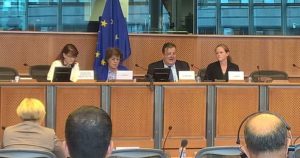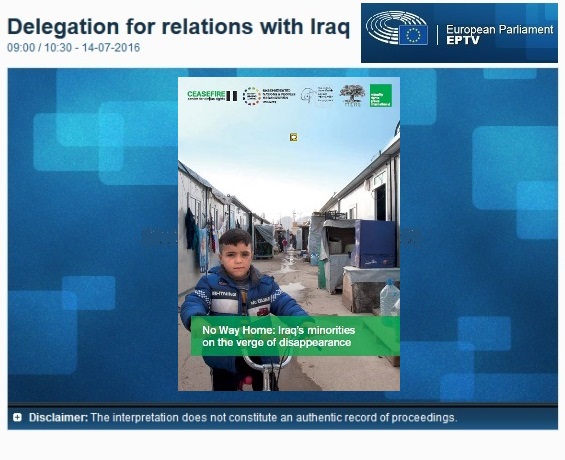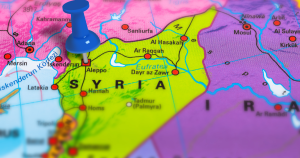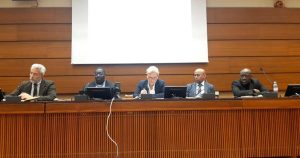European Parliament, Brussels, 14 July 2016
On Thursday 14 July 2016, the new joint report issued by No Peace Without Justice, the Unrepresented Nations and Peoples Organization, Institute for International Law and Human Rights and Minority Rights Group International on the situation of minorities in Iraq, was presented at a meeting of the European Parliament’s delegation for relations with the Republic of Iraq. “No Way Home: Iraq’s Minorities on the Verge of Disappearance” analyses the situation of various ethnic and religious components of the country, focussing on the crimes and abuses to which they are exposed and the consequences that this might have on the survival of these communities as a whole.
The meeting was chaired by Ana Gomes MEP (S&D), who gave a brief introduction to the situation in Iraq, with some references to the recently concluded Chilcot inquiry. Ms Gomes also reminded speakers, members of the delegation and audience of the tragic terrorist attack in Baghdad on 3 July 2016, which caused over 200 deaths and shows once again how fragile the situation is in the country.
Following the introduction, Mr William Spencer (Executive Director of the Institute for International Law and Human Rights) presented the actual report and provided a brief analysis of the military situation in Iraq, giving as an example the particularly complicated situation in the Sinjar district, mainly inhabited by the Yazidi population. Mr Spencer also underlined how the dire security situation is hiding to the world the tragic economic collapse of the country, which in Kurdistan is referred to as the “great recession”. This concerning economic situation is due to a combination of prolonged war and instability, which have led to around 3.3-3.4 million internally displaced people, as well as to the significant drop of oil revenues and to endemic corruption.

Ms Allison Smith (Legal Counsel and Director of the International Criminal Justice Programme of No Peace Without Justice), explained the methodology used for the report, which is a follow up to a previous one entitled “Between the Millstones: The State of Iraq’s Minorities since the Fall of Mosul”, published in February 2015. She underlined how unfortunately very little has changed since then, with similar crimes and similar brutality occurring regularly in different parts of the country. A sad difference is the emergence of new elements such as the use of chemical weapons by the so-called Islamic State. Among the many horrors currently taking place in the region, Ms Smith highlighted sex and gender-based violence, in particular against minority women, as well as crimes against children. While caution is to be used with the word ‘genocide’, whose legal definition is very precise, the fact that this word is used so frequently by the media is the best indicator of the responsibility to act that the international community should feel.
Following the speakers’ presentation, a representative of the Embassy of the Republic of Iraq and a representative of the Kurdistan Regional Government took the floor. Ms Elzbieta Fotyga MEP (ECR), chair of the EP Committee on Security and Defence (SEDE), underlined instead the great concern that comes along with the use of chemical weapons by ISIS.
- Agenda of the D-IQ meeting
- For further information on the report (including a downloadable electronic version) click here: http://www.npwj.org/node/12506




